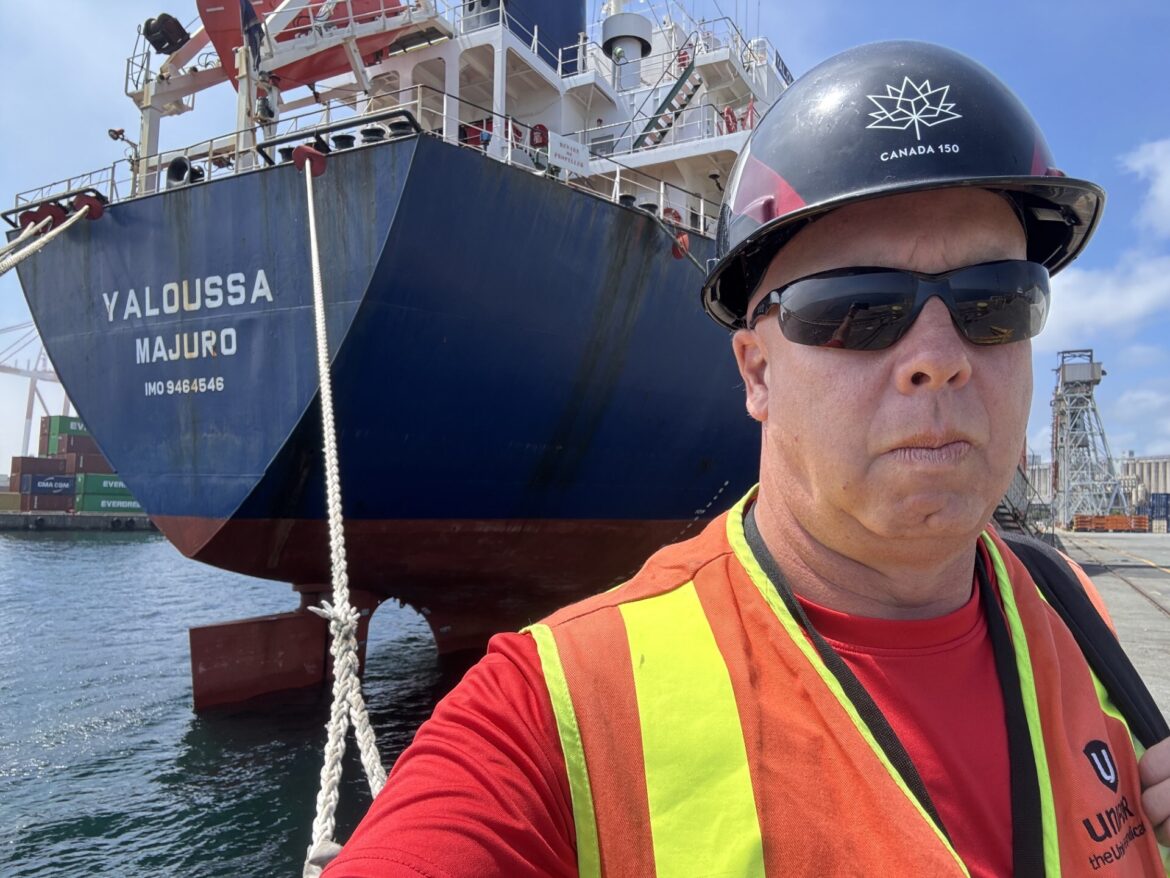Canada’s largest private-sector union is raising concerns about reports of ship captains refusing access to international inspectors at major Canadian ports, citing potential risks to seafarer working conditions and labour rights.
Unifor says International Transport Federation (ITF) inspectors have been denied access to vessels in Halifax, Vancouver and Montreal during routine inspections meant to verify minimum working and living standards for crew members.
“As crew on transport ships, workers spend months at sea travelling from port to port where they are vulnerable to exploitation, mistreatment, and in some cases not being paid,” said Unifor National President Lana Payne, who also sits on the Executive Board of the ITF. “Any ship captain who is upholding international standards would have no reason to refuse access to the ITF Inspector, so an increasing number of refusals is reason for concern.”
Growing inspection challenges
The ITF operates a network of 147 inspectors and contacts based in ports worldwide. These inspectors conduct routine checks and respond to crew requests to ensure seafarers receive proper pay, working conditions and living standards aboard vessels.
“When your job involves months of being in the most remote of locations and you are at the mercy of multi-national corporations flying flags of convenience in international waters, it’s the ITF Inspectors that are your source of support and representation,” said Unifor Atlantic Regional Director Jennifer Murray. “If a ship comes to a Canadian port, they should expect us to care and respond to how workers aboard are being treated.”
The union points to complications involving Lanibra, a Slovenian-based corporation that has created what the ITF calls a competing organization claiming to represent seafarers. The ITF argues this arrangement creates a conflict of interest that undermines legitimate worker representation.
Labour law concerns
In correspondence with the Slovenian government, the ITF highlighted what it sees as regulatory violations, stating: “This is a clear violation of ILO Convention 98, which guarantees workers the right to organise without interference from employers. It also breaches Slovenian national law, which requires unions to be genuinely independent. A trade union cannot claim to represent seafarers when it’s run by those who profit from them.”
Unifor is encouraging members to support an ITF petition asking the Slovenian government to investigate the organization and take steps to uphold labour law requirements.
“Having an inspection refused worries me because I’ve spoken with so many seafarers who are being kept from going home by their employers, or who aren’t being fed well or paid what they’re due. So, I’m definitely concerned about the workers aboard those vessels and what their working conditions are like,” said ITF Coordinator (Canada) Karl Risser. “Seafarers deserve to be respected and we’re here to make sure that’s happening.”
Unifor represents 320,000 workers across major sectors of the Canadian economy and advocates for worker rights both domestically and internationally.






